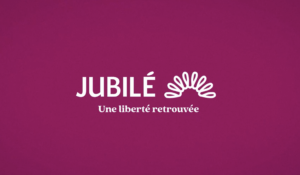Pierre Cornet-Vernet, Jubilé: There is significant potential for growth in the French equity release market

Pierre Cornet-Vernet, Co-Founder and CEO of Jubilé from France, explains the company’s mission to empower the elderly in France, where over 70% of senior citizens own their primary residence and are increasingly in need of financial solutions.
Can you tell us about the rationale for the creation of Jubilé, as a French start-up established in 2021, against a backdrop of changing dynamics in the French equity release market in recent years?
We began with a straightforward observation: currently, the elderly in France have limited options for financial solutions, particularly ethical ones. Banks predominantly lend to young, healthy individuals employed on permanent contracts. However, the financial needs of our seniors are substantial. They require funds for home improvements and modifications, ongoing home maintenance, healthy ageing, costs of dependency, and providing intergenerational support. Access to credit is a critical issue for them and their families, representing a broader societal challenge.
Another key observation is that over 70% of seniors in France own their primary residence, which translates to more than 10 million individuals. What are their options? Mostly, they have none. The typical solution involves selling their home, either outright or through a life annuity. While this approach addresses some needs, it’s far from ideal. We believe we can do better, particularly by keeping the property and its potential future value within the family.
In our search for a solution to finance our parents’ needs, we explored various options. We discovered that the consumer code already includes a law for exactly this purpose: the reverse mortgage (or “prêt viager hypothécaire” in French). Defined with precision by the consumer code since 2006, the maturity of a reverse mortgage is linked to the borrower’s estate, the sale of the property, or it can be settled early at the borrower’s discretion. Moreover, this type of loan, being zero coupon, does not strain the already tight monthly budgets of seniors.
However, today, almost no bank offers this service. That’s where Jubilé steps in, offering a new financial solution for our elderly. We are dedicated to empowering the elderly, ensuring their financial stability, and recognizing their invaluable contributions. It is our mission, our ‘raison d’être’.
How would you describe the current position of the equity release market in France, at the end of 2023? What types of products are available on the French market? What are the main sales channels used to reach potential customers?
The equity release market in France is still almost non-existent. It is beginning to develop, primarily through small startups like ours, as well as some initiatives from a major bank. However, amidst growing inflation, decreasing pensions, and the rising cost of living, our senior population is increasingly in need of financial solutions.
Despite its underdevelopment, seniors have alternative ways to leverage their real estate assets. These include the life-annuity sale, known locally as “viager”, and the sale of bare ownership, or sale of “nue-propriété” in French. While these methods can provide financial relief in later life, they also involve selling and losing ownership, which may not be feasible for everyone.
We anticipate that the market will begin to attract more attention next year. The launch of Jubilé should contribute significantly to this increased interest!
Regarding sales channels, the field is relatively narrow so far.
How do you see the level of consumer awareness of equity release options in France? What are some of the main uses of equity release products in France? What trends are you seeing currently?
In France, the concept of reverse mortgages is still relatively unknown, especially compared to countries like the USA or the UK. Despite being available in the French law for some time, there is a noticeable lack of consumer awareness and understanding. This may be partly due to the limited offers at this stage.
We launched our digital platform in 2023, and to date, a significant portion of our demand stems from unforeseen expenses such as home renovations and maintenance. Costs related to ageing is a strong driver as well.
Regarding current trends, the market is still evolving, but recent efforts are focused on revitalizing and securing this type of loan. Nonetheless, the high cost of reverse mortgages continues to be a significant obstacle to wider acceptance. There are ongoing efforts to reduce these costs and enhance the appeal of the product.

How do you see the appetite of investors for moving into the equity release space in France, and how can this be further stimulated?
The reverse mortgage market in France is currently viewed as a specialized sector, characterized by a cautious approach to investment. This caution stems from the product’s complexity, concerns regarding the age of borrowers, the unique regulatory landscape, and compounding interest. It doesn’t fit in any traditional investment category.
Despite these challenges, there is significant potential for growth, especially considering the ageing population and the important rate of property ownership among seniors.
Many major financial institutions are demonstrating a willingness to assist their elderly clients and could potentially consider this excellent product.
To stimulate investor interest, clear and favorable regulations are essential to encourage investment in this sector. Potential measures could include guarantees to mitigate perceived risks, or reduction of capital requirement for banks on the product. Furthermore, collaboration with banks and other financial institutions is crucial for integrating reverse mortgages into broader retirement planning strategies.
Looking ahead, what are your plans for Jubilé in 2024? How do you see prospects for growth across the French market more broadly?
Regarding Jubilé, we are gearing up to embark on our journey in Q1 2024 with a major French bank through a pilot project across several regions in France.
So far, we believe that in France, the issue is more about a shortage of quality offerings than a lack of demand
However, lack of awareness and understanding of reverse mortgages among the general public is quite a hurdle. To tackle this, dedicated efforts towards education and awareness-raising are essential. By effectively communicating the benefits and protections that reverse mortgages provide to borrowers and their heirs, we can foster greater interest and demand for these financial products. This strategy not only addresses the immediate financial needs of seniors but also contributes to creating a more informed and empowered group of consumers.
